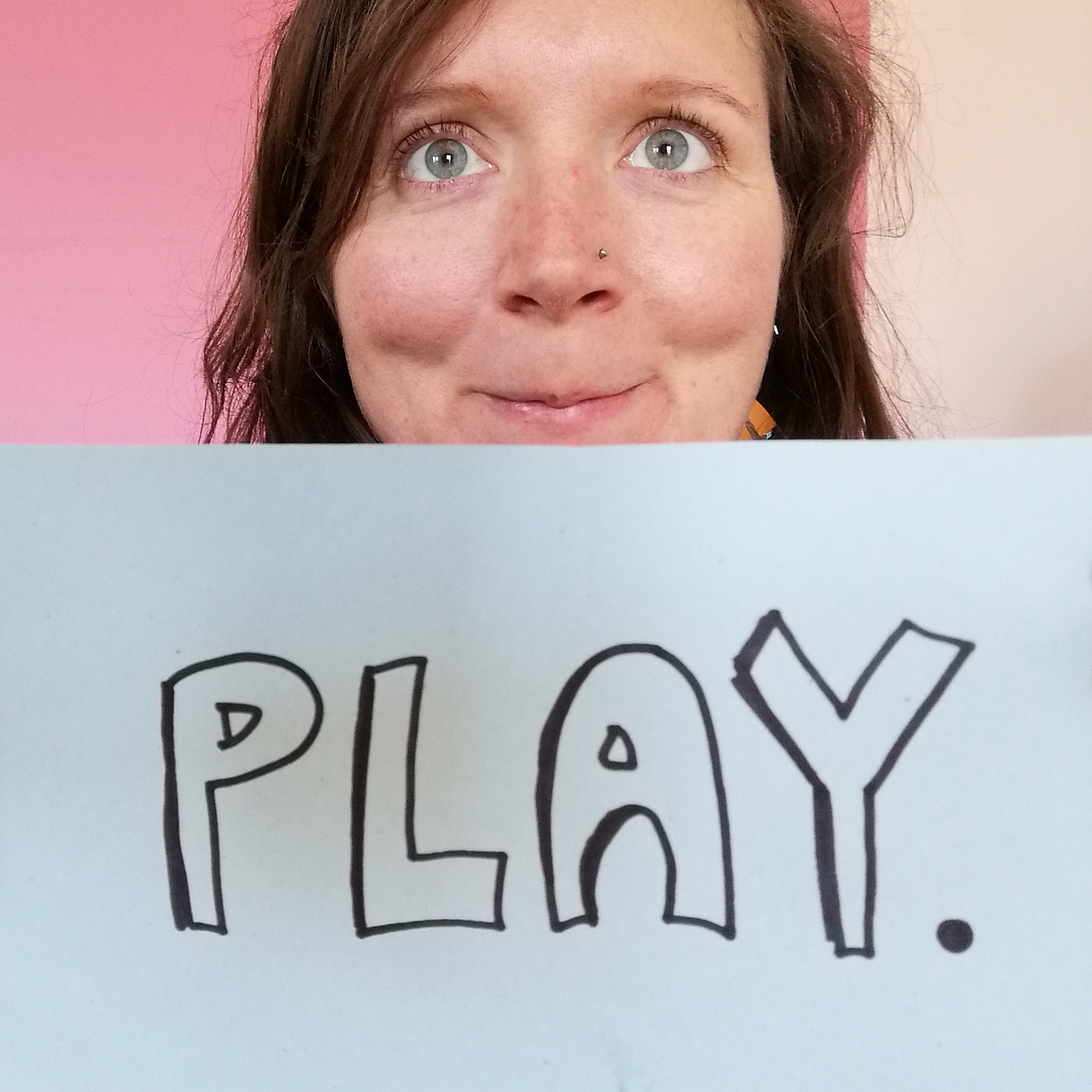Adele Cleaver trained as a playworker in Birmingham in 2009. She has recently moved to Nottingham with her husband and 2 daughters. She had never planned to work with children but the world of playwork fascinates her. She has documented her playwork journey and how it influenced her in early parenthood in her memoir “Children don’t dissolve in the rain.” Here is an excerpt from the chapter Wearing my playwork hat at home.
I knew I was a playworker who became a parent when I realised that I often went more than thirty minutes without talking to our two-year-old. She was full of language and words but I just did not feel I needed to speak to her all the time. One of the eight Playwork Principles4 is ‘playworkers choose an intervention style that enables children and young people to extend their play.’ If I was intervening with unnecessary dialogue then I felt I was indeed distracting her from her play.
I think from working with lots of children, and particularly those with cognitive disabilities, I grew a sensitivity to how my presence can disrupt the flow and focus of children playing. Adults can be really distracting for children. Our generation of parents are indulging in our children like never before; we want to know where they are and what they are doing at all times of day and night. Cameras on cots, apps with live updates from childcare providers and pre-teens with mobile phones; it is all surveillance that previous generations did not have and I think it is pressuring parents into guilt trips if we don’t know what our child is doing. I think my child’s sense of self in her play is more precious than anything I have to say.
Over the years it has been challenging working in nonplay-based settings with colleagues who overlook the value of play and have accused me of ‘not doing anything’. I’ve fought my corner with ‘Letting them play is the best thing an adult can do for a child.’ But I’ve always felt quite misunderstood, particularly when working in schools.
As a playworker parent I can see that when my daughter and her friends can negotiate their own play it is good for their brains.
Now that they are past the hazardous choking phase I don’t keep an eye on them, but rather leave them to it until one is about to drag the eyes out of another. So far, all eyes are intact.
I remember when our daughter was a little bit bigger than a newborn, I could sit and watch her for hours. The tiniest of movement felt precious and incredible, the new facial expressions fascinated me and captured my attention for what felt like hours on end. The slightest of vocalisations rang in my ears like the strongest soul choir. I was infatuated. I am sure these observations are true of many new parents. For me, the best bit about being a playworker and a parent is how much I value observing our child at play. The more our daughter plays, the more I observe in awe.
The magic of seeing a rainbow stops me in my tracks and slows me down for a minute. That is how I feel about our daughter’s creativity. Not so much her paintings, or her drawings, or her rhythmic movement, but what really captures me is her play. Just like when a rainbow emerges from the darkest, thickest clouds, or glimmers over a deep blue sky, I stop and marvel at her infinite spectrum of possibility. Her requests to help her build a crane from a cardboard tube, dig a swimming pool on the kitchen floor, make a flying dragon or a mermaid’s wig. Her stamina for role play with her sophisticated facial expressions, and the soulful ballads she improvises narrating each day’s triumphs and woes. The heights she climbs in autumnal orchards (or on our banisters) and the way her body scrambles across rocks at the seaside.
I love how deeply she is teaching me as she explores through her own play. And every few weeks it is evolving and organically changing direction.
Every child can show us new ways to play if we just sit back and let the play unfold before us. In my early days of playwork in Birmingham I felt it was a real privilege to watch mostly disabled children’s play evolve; the creativity of some of my city’s most excluded children was mind-blowing. As a parent I glow with joy because I know that all the unstructured hours for freely chosen play are the only true gift we can give her. And I know that, unlike any shop-bought toy, our gift is helping her innovation, her character and her judgement to grow in all sorts of fortuitous directions.
You can buy a signed copy of Adele’s book here or as an ebook from Amazon.





